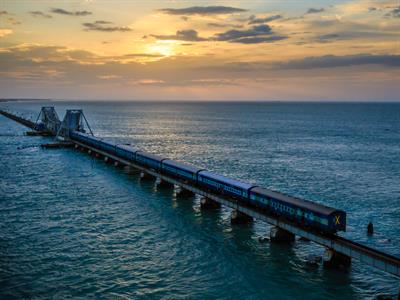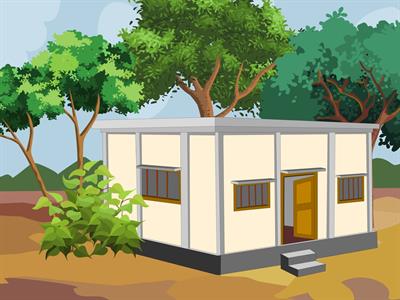PDF chapter test TRY NOW
1. I WAS born into a middle-class Tamil family in the island town of Rameswaram in the erstwhile Madras State. My father, Jainulabdeen, had neither much formal education nor much wealth; despite these disadvantages, he possessed great innate wisdom and a true generosity of spirit. He had an ideal helpmate in my mother, Ashiamma. I do not recall the exact number of people she fed every day, but I am quite certain that far more outsiders ate with us than all the members of our own family put together.
2. I was one of many children — a short boy with rather undistinguished looks, born to tall and handsome parents. We lived in our ancestral house, which was built in the middle of the nineteenth century. It was a fairly large pucca house, made of limestone and brick, on the Mosque Street in Rameswaram. My austere father used to avoid all inessential comforts and luxuries. However, all necessities were provided for, in terms of food, medicine or clothes. In fact, I would say mine was a very secure childhood, both materially and emotionally.
Explanation:
The lesson is an extract from Dr. Abdul Kalam's autobiography 'Wings of Fire'. He recounts his childhood experiences in this particular extract. He narrates interesting incidents from his own life that paved the way to shape his life. Kalam was born in Rameswaram, which was a part of the Madras Presidency. Unlike today, in earlier days, Madras included most of the Southern Parts of Tamil Nadu, northern parts of Malabar region, Lakshwadeep, Coastal Andhra and several other neighbouring areas. During Kalam's birth, Rameswaram was part of Madras State. He was born in a Tamil middle-class family of Muslims. In today's scenario, Rameswaram belongs to the Ramanathapuram district in Tamil Nadu. It is on Pamban island, separated from Sri Lanka. The Pamban bridge is one of India's most famous railway bridges, connecting Pamban Island and Rameswaram. In the early days, when there was no bridge, ferries transported pilgrims and merchandise across the banks. Kalam's father was also one such person who ferried people.

Pamban Bridge
Kalam's father, being a ferryman, did not have degrees or proper schooling to his credit but was a person who was good at heart. He did not have formal education or wealth. But Kalam emphasises that education has nothing to do with the personality or the goodness that a person possesses. He also had innate wisdom, in the sense that he knew a lot of things, possessed skills and true generosity of spirit. His wife Ashiamma, Kalam's mother, was a homemaker and helped him by taking care of the house. Although they were not very rich, she made sure to feed many people who needed help. She took care of them like her own family members.
Kalam was the youngest of the family as he had three elder brothers and one sister. He describes himself as a short boy who looks average, in spite of his parents being tall. In Rameswaram, they lived in a small house built in the nineteenth century. It was a pucca house, designed to be solid and permanent, made of limestone and bricks. It was on the Mosque street, as it was easy to attend the prayers for them. His father lived a simple life avoiding unnecessary luxuries but ensured all basic necessities like food, shelter and medicines were provided. Kalam recounts that he was both materially and emotionally provided for as a child.

Pucca house
Words with difficult meaning:
| S.No | Words | Meaning |
1 | Island | A piece of land covered by water on all four sides |
2 | Erstwhile | Something that happened previous to an event |
3 | Innate | Inborn and natural |
4 | Generosity | The quality of being kind and generous |
5 | Ideal | A person or thing regarded as perfect |
6 | Undistinguished | Plain and ordinary |
7 | Ancestral | Inheriting from family |
8 | Limestone | A hard rock used to make cement |
9 | Austere | Strict attitude |
10 | Luxury | Possessing comfort and wealth |
Reference:
National Council of Educational Research and Training (2006). Beehive. My Childhood - APJ Abdul Kalam (pp.68-79). Published at the Publication Division by the Secretary, National Council of Educational Research and Training, Sri Aurobindo Marg, New Delhi.
